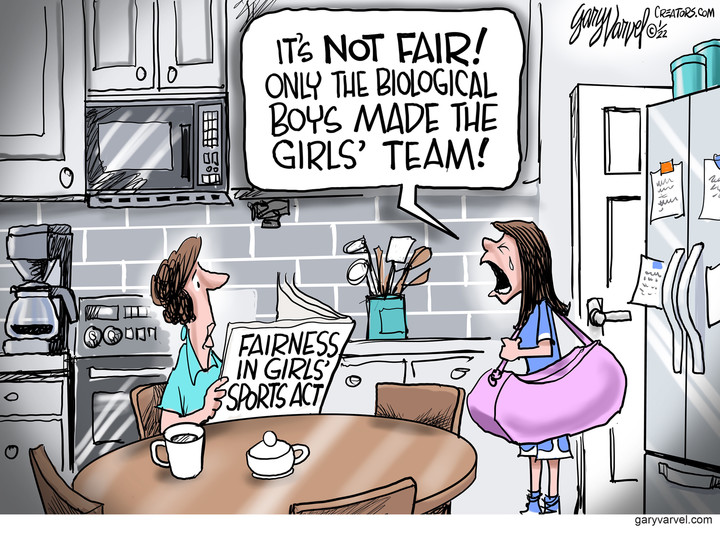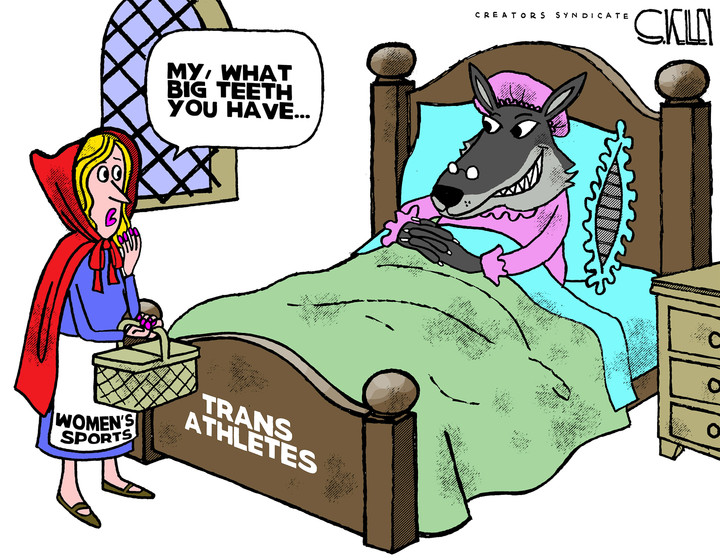Our goal is to have intelligent discussion of the topics of the day. We realize everyone has their opinion and they should be allowed to express it in a discussion forum without calling each other names. We learn from discussion and not from name calling or argument.We use cookies to personalise content and ads, to provide social media features and to analyse our traffic. We also share information about your use of our site with our social media, advertising and analytics partners. See details
Contact Form
Friday, January 28, 2022
Thursday, January 27, 2022
Fed Will Blow It
The Fed Has No Real Plan,
and Will Likely Soon
Chicken Out On Rate Hikes
by Ryan McMaken | Mises.orgThe Fed’s Federal Open Market Committee (FOMC) released
a new statement today purporting to outline the FOMC’s plans
for the next several months. According to the committee’s
press release:
With inflation well above 2 percent and a strong labor
market,
the
Committee expects it will soon be appropriate to raise the target range for the federal funds rate. The Committee decided to continue to reduce the monthly pace of its net asset purchases, bringing them to an end in early March. Beginning in February, the Committee will increase its holdings of Treasury securities by at least $20 billion per month and of agency mortgage‑backed securities by at least $10 billion per month. The Federal Reserve’s ongoing purchases and holdings of securities will continue to foster smooth market functioning and accommodative financial conditions, thereby supporting the flow of credit to households and businesses.
The lesson here is that even when inflation is high and the labor market is supposedly strong, the Fed will still only proceed toward tapering and tightening in the slowest, most cautious manner possible.
Although price inflation is at a forty-year high, the Fed is still unwilling to commit to a rate hike in March, and it’s planning to only end new asset purchases for its balance sheet by March. The Fed still refuses to acknowledge any connection between inflation and the incredibly large amounts of money creation and credit creation it fostered over the past decade and especially over the past two years. After all, in its statement, the Fed emphasized that “supply and demand imbalances related to the pandemic and the reopening of the economy have continued to contribute to elevated levels of inflation.”
All of this, however, only amounts to what the Fed is willing to say right now. The “plans” outlined here are no more than the stated, tentative plans for the FOMC. Whether or not any of this actually happens is another matter.
The Fed Is Prepared to Turn More Dovish at the First Sign of Trouble
Indeed, the Fed’s fear and lack of backbone was much more clearly emphasized in Jay Powell’s Q&A with reporters, which followed the release of the FOMC’s statement.
During the presser, Powell repeatedly emphasized that the Fed must remain flexible and that the targeted policies could change at any time, depending on the economic situation. “We need to be adaptable,” he said, and managed to include the typical dovish remarks when he stated that really the current goal with the balance sheet is—at some point—“allowing the balance sheet to begin to run off.” Although the press released mentioned movement toward quantitative tightening for the balance sheet, Powell repeatedly downplayed this in the Q&A.
So, while some news reports covering the Fed’s announcements today appear to conclude that the Fed will surely begin raising rates in March, that remains very much up in the air. And beyond that, the lack of focus on the balance sheet in Powell’s remarks suggested that the Fed is still very much only at the stage of merely contemplating an end to new additions to its portfolio. Actual reductions are still not on the table.
Indeed, it still looks like we’re looking at a repeat of 2016, when the Fed claimed it was going to implement four rate hikes that year. Only one rate hike actually occurred. Anticipated rate hikes based on Fed signals also failed to appear in 2019, when Fed wathers at Goldman and JP Morgan predicted four Fed hikes that year. What actually happened was one rate hike (from 2 percent to 2.25 percent), followed by rate cuts later in the year. That’s likely what Powell is referring to when he says the Fed must be adaptable and flexible. It must be prepared to become even more dovish at any given time.
The Fed Admits Price Inflation Is Actually a Problem
In any case, politically, it is clear that the Fed has been feeling the pressure on price inflation. The Fed has clearly now abandoned its position—expressed repeatedly last fall—that inflation is “transitory” and no big deal. Powell today admitted price inflation “hasn’t gotten better. It’s probably gotten a bit worse … I think to the extent the situation deteriorates further, our policy will have to address that.”
Powell also stated what has long been obvious about price inflation—namely that it hurts the lowest-income people in the population. “Some people are just really prone to suffer more” from inflation, Powell said. He noted that inflation for the wealthy can be unfortunate, but that “it’s particularly hard on people with fixed income and low income.” It’s hard on people with lower incomes, of course, because those people have to spend a higher percentage of their incomes on food, gasoline, and other basic necessities. Many can’t afford to be homeowners—thanks to easy-money-fueled asset price inflation—and so must keep up with rising rents.
This, of course, pours cold water on all those columns from financial columnists in recent months who have been repeatedly penning articles on how price inflation is actually good for most everyone because when there’s inflation, debtors repay their debts in devalued dollars. That narrative, of course, is based on the myth that it’s lopsidedly ordinary people and lower-income people who benefit from devaluing debt payments. In reality, inflation tends to favor people and organizations with more wealth and higher incomes because it’s those people who are most able to access large loans on favorable terms. Much of the time, people with few assets and low incomes can’t get loans at all. Or they can obtain these loans at much higher interest rates which greatly reduce the benefits of paying off debts with devalued dollars.
One example of this is a column by Allison Morrow last month in which she wrote:
But on the whole, inflation can actually be a good thing for many working-class Americans, especially those with fixed-rate debt like a 30-year mortgage. That’s because wages are going up, which not only empowers workers but also gives them more money to pay down debt. Plus, in the case of a mortgage, your monthly payment will be the same but your house will increase in value…
The idea that “wages are going up” whenever there is inflation is rather fanciful. As we’ve seen, inflation has been outpacing wages, meaning real wages are going down. So no, there is absolutely no guarantee at all that wages will be going up when price inflation surges.

Note also the old canard that rising home prices are generally a boon. Rising real estate prices are no great thing for renters, of course, but they also present a big hurdle for potential first-time home buyers, who are being priced out of the market. Rising home prices also mean higher property taxes. In fact, rising home prices are only an unmitigated good for those who plan to downsize their homes and move to cheaper markets. Otherwise, one’s rising home prices are only helping one keep up with the marketplace, since inflation provides no windfall for someone moving from one house to a comparably priced house on the other side of town. It’s all just a wash at best.
As a final sign of dovishness of the Fed’s overall position, we can also note one especially good question from the gallery today. One of the journalists asked if the Fed would allow the inflation rate to fall below the target 2 percent rate so as to achieve the much-touted “2 percent average.” This question was in reference to the Fed’s move in recent years toward not targeting “2 percent inflation” at all times but rather a “2 percent average.” What that meant in practice was the Fed would allow inflation to run above 2 percent if inflation ever dipped below 2 percent so as to balance it all out at 2 percent. Yet now that price inflation is well above the 2 percent target, this raises the reasonable question of whether or not the Fed will target something below 2 percent to achieve an average at 2 percent over time. Powell stated that no, the Fed has no plans to deliberately push inflation below 2 percent at any time. In other words, the 2 percent average target only applies when it’s an excuse to keep inflation above 2 percent.
Overall, the impression one gets from watching the Fed today is that it’s most certainly not in control of the situation and is hoping to muddle through. It’s still unclear which way the Fed will go, however. Will it choose inflation or recession? Either way, a lot of people are likely in a lot of trouble.
Tuesday, January 25, 2022
You Can't Get A Tattoo Before Age 18 Without Parental Approval, But You Can Get A Covid Shot!
https://www.infowars.com/posts/undercover-footage-students-film-as-school-covid-clinic-vaccinates-children-without-parental-consent/
This Is On Biden's Watch
Read this article on abuse of government largess and the incompetency of the government in monitoring the money it gives out. It is ugly!
All of it happened since December 2020 which makes it Biden's scandal.
Is this the only abuse, we doubt it!
https://www.msn.com/en-us/news/us/how-a-wedding-photographer-and-a-donut-shop-owner-got-millions-in-a-covid-testing-operation-now-under-investigation/ar-AASQzrt
Sunday, January 23, 2022
How Many Olympians Will Be Arrested?
Communist China’s insane Olympic crackdown
Thousands of athletes, coaches, and support staff are about to descend upon Beijing for the Winter Olympics.
Once there, they’ll face something far more ominous than the ongoing surge in coronavirus cases: Draconian communist laws, severe restrictions on speech, and the threat of expulsion and potentially prison for even the slightest missteps.
Turn OFF aging [Sponsored]
One Chinese official’s clumsy attempt to reassure the international community quickly fell flat.
“Any expression that is in line with the Olympic spirit I’m sure will be protected,” Yang Shu, deputy director general of international relations for the Beijing Organizing Committee, said in a news conference, according to the Washington Post.
But then his next line sounded more like a warning than a reassurance.
“Any behavior or speech that is against the Olympic spirit, especially against the Chinese laws and regulations, are also subject to certain punishment,” he insisted.
His comments seem to suggest that both the Olympic spirit and Chinese laws and regulations are on the same page.
But they’re not.
Sponsored: Discover the 3 foods that contain powerful blood pressure-improving nutrients
Like China, the Olympics themselves forbid political and religious expression at the events and within the venues, even though athletes have certainly put that rule to the test in the past.
The difference, as the Post pointed out, is that it’s no longer just a violation of the Games’ charter… but a potential violation of Chinese law, as well as the threat of “certain punishment” under those infamously strict rules.
Beijing is known for its draconian measures regarding speech, attacking anyone and anything for even the slightest criticism.
U.S. companies, business people, and athletes have all come under fire – and faced repercussions – for criticizing China.
They’ve come down on NBA executives and entire teams for speaking out in favor of pro-democracy protests in Hong Kong.
And they’ve been touchy about dozens of other issues, including its concentration camps, where human rights groups say some 1 million ethnic Uyghurs are being held.
Even simply mentioning that Taiwan is a country can draw Beijing’s wrath, which led to an almost comical moment when a member of the World Health Organization hung up mid-interview rather than even acknowledge Taiwan in 2020:
The thousands of young athletes traveling Beijing will almost certainly not be nearly as cautious, nor should they be.
The fear now is that some of them could find out in real-time just how draconian China’s response on those issues could be as China not only appears ready to crackdown but even seems to be encouraging athletes to report each other, a favorite tactic of communist regimes.
And they could do it by way of an app – one they’re telling athletes to install in their phones, ostensibly to track health during the games, given the pandemic.
Security experts have said the app is full of holes and can be used to access personal data.
But there’s also another problem with it: Along with reporting potential coronavirus symptoms, there is a feature to report “politically sensitive” material, according to a report form the cybersecurity organization Citizen Lab.
There is even a list of political keywords that could trigger such a report.
Human Rights groups are worried about the athletes.
“There’s really not much protection that we believe is going to be afforded to athletes,” Rob Koehler, director general of Global Athlete, told Reuters. “Silence is complicity and that’s why we have concerns. So we’re advising athletes not to speak up.”
But he did suggest one way athletes could get around it… sort of… without remaining silent for long: “We want them to compete and use their voice when they get home.”
China may be able to silence its critics at the Games themselves… but they can’t stop young athletes from speaking out afterward.











